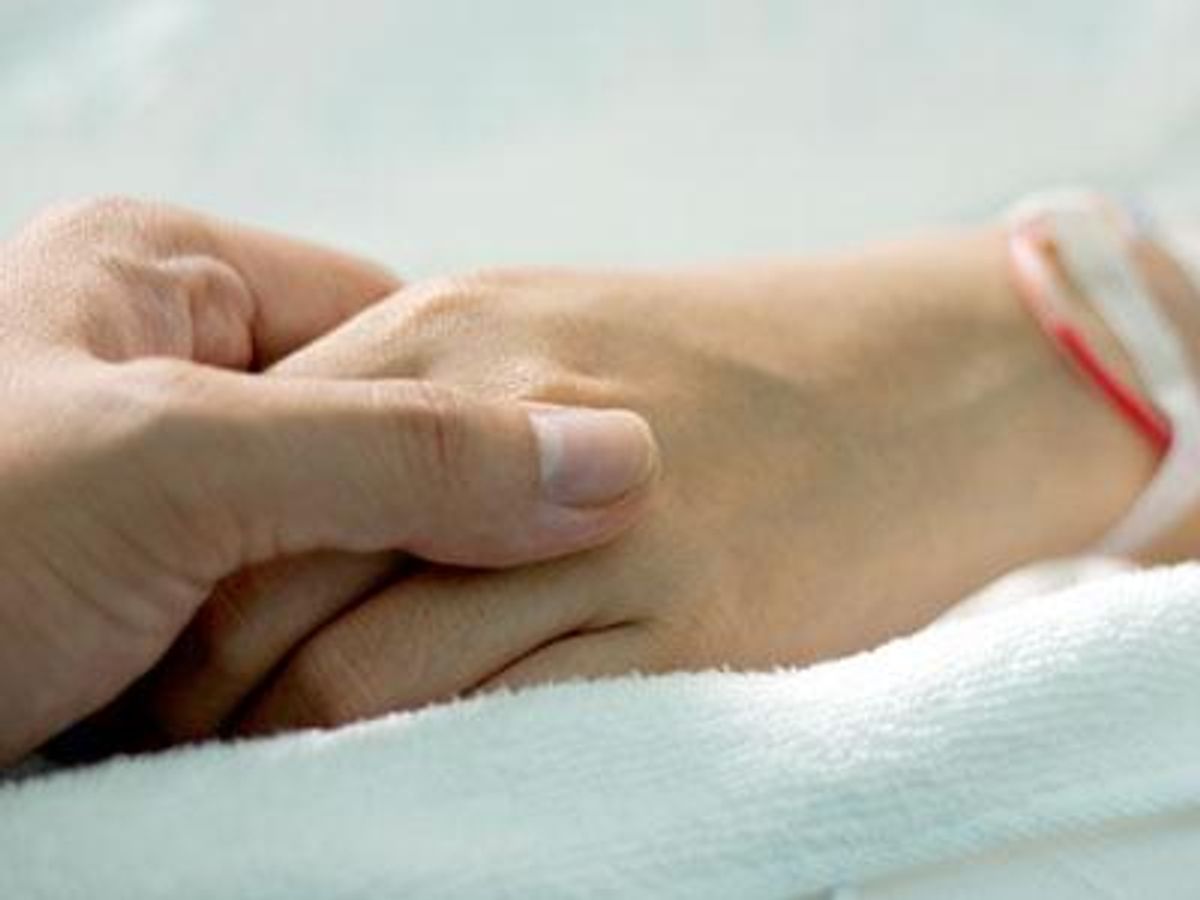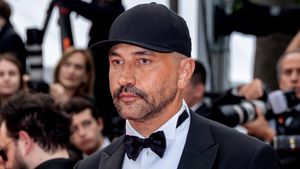When I first met José, he was already intubated in the intensive care unit, breathing only with the help of a ventilator. Suffering severe pneumonia, he had been found unconscious in his apartment by the landlord. José wore a crucifix on a chain around his neck, and he had a business card for the local LGBT center and a bottle of HIV medication in his pocket. There were no documents to confirm his identity.
For weeks my medical team and I meticulously watched over José’s physical health. Twice his lungs collapsed, and we put in several catheters to reinflate them. Five times he went into respiratory failure despite being on maximal mechanical support. We spent hours manually pushing air through his breathing tube to keep him alive. A multitude of continuous IV medications and blood products maintained a semblance of vital signs. Drains in his bottom kept him clean and dry. We could not feed him because he had persistent bloodstream infections. Every week the quality assurance team came by to ask, What are your care goals?
This is usually a question my medical team and I would discuss with the patient or a patient’s family. But José could not be awakened and no one ever came to see him. Fingerprinting turned up no leads. No missing persons report had been filed fitting his description. We called the doctor who wrote José’s prescriptions. He gave us the number for an emergency contact, but that man said he had not seen or heard from José for months and knew no personal information about him.
José’s profound disconnectedness troubled me. Every day his nurse and I evaluated all his tubes, medications, and machine settings with extra care, trying to compensate for his loneliness. I would squeeze his hand for a moment before I left, though I wondered if he was still with us in this world. The immensity of his solitude weighed on me. He could pass away without anyone who had ever mattered to him having a clue.
How did José become so cut off? Was it because he was gay or HIV-positive or both—or something else altogether? Working in a safety net hospital, I have cared for many people like José, who are hanging by mere threads in the margins of society. What kills them, and often in heartbreaking ways, is not their physical illness. It’s their social isolation. Stigma is the cultural stress that ultimately extinguishes their lives.
 When academics talk about vulnerable populations, they are usually referring to people who have no money and no power, or who need public assistance to thrive. Health care disparities are defined along demographic factors like ethnicity, income, employment, education, and marital status. Ultimately, though, what makes certain groups more vulnerable than others is not the category they identify, or are identified, with; it’s how connected they are to other human beings. Poor people can belong to strong communities that will take care of them in times of need, and thus be resilient. The same goes for people who are unemployed, disabled, or uneducated. People end up on the street only when they don’t have anyone at all.
When academics talk about vulnerable populations, they are usually referring to people who have no money and no power, or who need public assistance to thrive. Health care disparities are defined along demographic factors like ethnicity, income, employment, education, and marital status. Ultimately, though, what makes certain groups more vulnerable than others is not the category they identify, or are identified, with; it’s how connected they are to other human beings. Poor people can belong to strong communities that will take care of them in times of need, and thus be resilient. The same goes for people who are unemployed, disabled, or uneducated. People end up on the street only when they don’t have anyone at all.
It is in this light that I have come to appreciate marriage equality as an important and relevant policy issue for our society. Beyond civil rights and basic human dignity, marriage creates a connectedness that is protective against life’s unknowns. When crisis strikes, it is a buffer that prevents people from ending up like José, who essentially became a ward of the state. What cause does the public have to deny equal benefits to consenting adults who want to make a lifelong commitment to each other? Why do we still quibble over gender when so much collective good is at stake?
The same month I took care of José, I met Oscar and his “cousin” Eddie. Like José, Oscar also came to the hospital with severe pneumonia, but Eddie was with him and brought him in when his condition was less critical. I was able to counsel both of them about intubation when breathing became too difficult. Oscar designated Eddie as his health care proxy. As long as Eddie was there, Oscar did not require much sedation or pain medication. We could see how quickly his heart rate and blood pressure improved with Eddie by his side. One quiet night I finally asked Eddie why he introduced himself as Oscar’s “cousin” when it was obvious that he was his partner. Eyes to the ground, Eddie muttered that he was afraid we’d kick him out if we didn’t think he was “family.” I started to apologize if we had made him feel uncomfortable in any way, but he interrupted and said, “It’s not you. It’s Prop. 8—that’s been hard on us,” as he laid his head on Oscar’s chest. “When will you be able to take this tube out, Doctor?”
On the whole, we have enough intractable conflicts to contend with, without wasting valuable time and resources to set up more stumbling blocks for ourselves. The ultimate goal of government is to provide an infrastructure for diverse peoples to live peacefully, happily, and freely together. Marriage equality, on this level, isn’t about interpretations of religious text, historical precedent, or legal technicalities. Moreover, it is not about whether or not the private sex lives of two people make us feel “icky” or not. As far as our elected officials are concerned, marriage is a simple civil construct to bolster beneficial human connections that spill over into all aspects of our lives—at work, in schools, in hospitals, in neighborhoods, and beyond. Pride can overcome individual shame, but it takes all of us together to remove stigma. It’s time to end the unnecessary suffering.
--
E. Wu is a physician in the Los Angeles area.

 When academics talk about vulnerable populations, they are usually referring to people who have no money and no power, or who need public assistance to thrive. Health care disparities are defined along demographic factors like ethnicity, income, employment, education, and marital status. Ultimately, though, what makes certain groups more vulnerable than others is not the category they identify, or are identified, with; it’s how connected they are to other human beings. Poor people can belong to strong communities that will take care of them in times of need, and thus be resilient. The same goes for people who are unemployed, disabled, or uneducated. People end up on the street only when they don’t have anyone at all.
When academics talk about vulnerable populations, they are usually referring to people who have no money and no power, or who need public assistance to thrive. Health care disparities are defined along demographic factors like ethnicity, income, employment, education, and marital status. Ultimately, though, what makes certain groups more vulnerable than others is not the category they identify, or are identified, with; it’s how connected they are to other human beings. Poor people can belong to strong communities that will take care of them in times of need, and thus be resilient. The same goes for people who are unemployed, disabled, or uneducated. People end up on the street only when they don’t have anyone at all.









































































